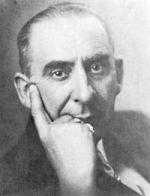But what interests us, it is not only to know about the menses if the colour is dark or the colour is pale or reddish but also if it is in clots, irritating the parts or if it is offensive or if it is bland or about the quality of the blood if it is more at night or more in day time, more in the morning if it stains the linen, if they are yellow or of different colours and so on. You may find in the repertory all the answers for these questions. This is very important. Now you have, you know, with the repertory and with your Organon, many things to ponder over and I think with all these explanations you will be able to feel the enthusiasm, that I feel for homoeopathy.
Because the more an allopath grows old the less he believes in his medicines. In a trolley car, when you see two physicians, one an allopath and one a homeopath, you know what they think. One thinks of the leg of the patient which will be in the anatomy, pathological anatomy, whether it can be cut off to cure disease. If it is of the abdomen whether there is a tumour and so on. Well he thinks of negative. But the homoeopath is always smiling and thinking what remedy may I find for this patient, there may be a remedy for this patient may be we will be able to save this patient. Mostly he always he always thinks with hope there is always the possibility of learning something more. The more an allopath grows old, the more he is pessimistic the more the homoeopath grows old, the more he is enthusiastic and optimistic.

